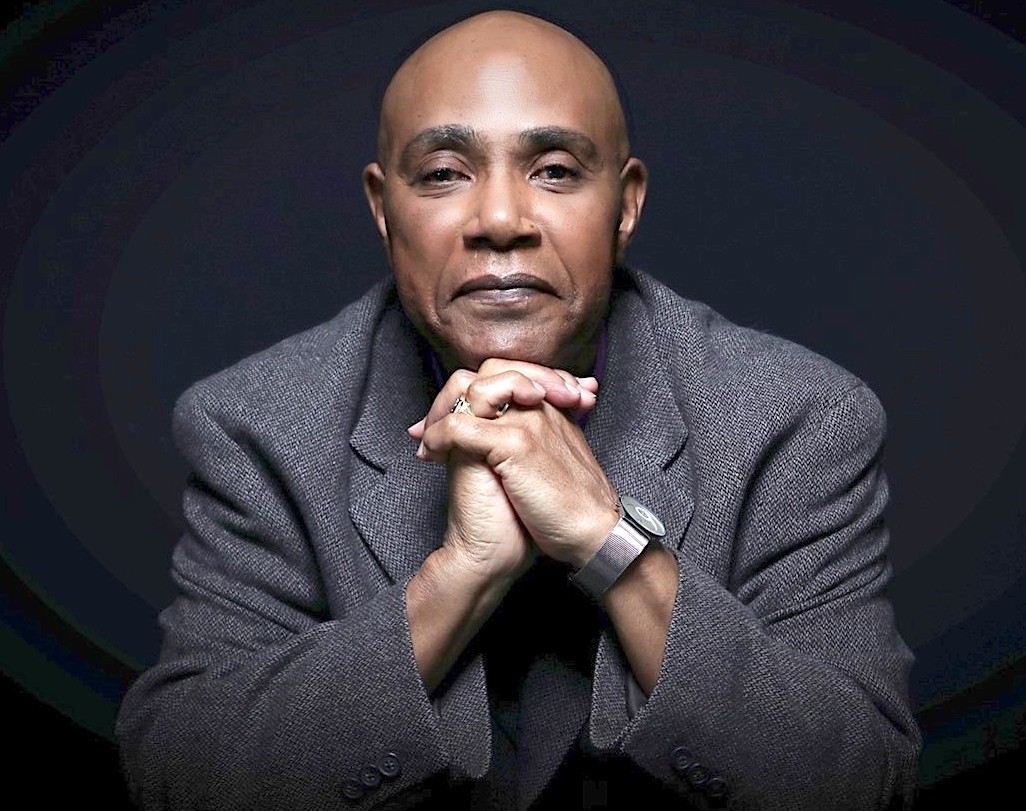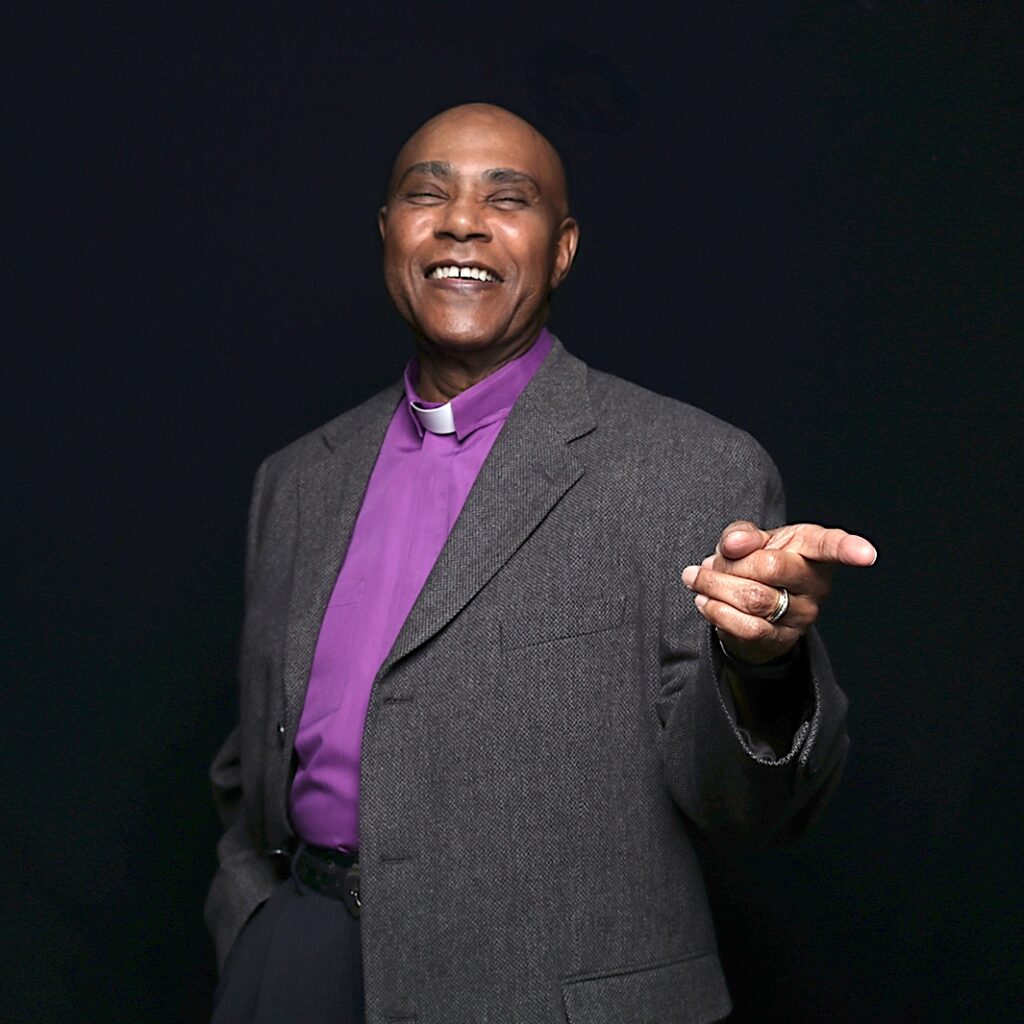
By Lindsay Peyton
Houston’s Newgate Fellowship UMC might look like any other church – but Pastor Marvin Hood explained there is a key difference. “We’re not a traditional church,” he said. “We’re a mission church.” The congregation is completely focused on restorative justice. “That’s what we do,” Hood said. “The nature of our ministry is to help men and women who have been incarcerated.”
The people seated in the pews might be those formerly in prison or members of their families. Others attend simply because they deeply care about restorative justice.
Hood does not count regular attendance. That’s not what matters, he explained. Newgate Fellowship offers a safe haven, a beacon of hope.
“We don’t try to establish a set of numbers,” Hood said. “We have a transient congregation. Men and women who have been in prison, who have been homeless, on the street, they come into the church, because we are a church of restoration.”

In addition to regular Sunday worship and Bible classes, members and volunteers visit prisons at least once a month, bringing the church to those still inside. “We usually ride up to Huntsville or Livingston,” Hood said. “We’ve been to a lot of prisons. You name it, we’ve been there.”
Member Claudette Singletary has been attending Newgate and accompanying Hood into the prisons for at least two decades. “The ministry is so rewarding,” she said.
Singletary said that sometimes as many as 300 prisoners will walk into the chapel when they know Hood is coming. “The chapels are packed, and they clap when he comes in,” she said. “He’s so well-known.” His sermons on Sundays are equally powerful, Singletary added. “He preaches from the lectionary, and he can take it and bring it to life,” she said. “You never hear the same sermon twice.”
Hood is the founding pastor of Newgate Fellowship. Before this post, he served the entire Texas Annual Conference, helping start and support restorative justice ministries. Hood continues to offer assistance to any faith community interested in restorative justice, whether they are looking for a speaker or a workshop. “They can call me,” he said.
Every Monday, Hood heads to Madisonville’s House of Hope, a nonprofit which helps men overcoming addiction. Hood knows firsthand the importance of recovery and prison ministry, the type of radical transformation that can happen even in the most dire circumstances. “I have been formerly incarcerated,” he explained. “And it was during my incarceration that my calling was manifested to me. That’s when Christ came into my life.”
Hood’s mother died when he was only 3 years old. “I didn’t get a chance to get to know her,” he said. Still, he clearly remembers her holding him up in the air and saying, “I had you for God. You’re going to be a preacher.” After all, her father – Hood’s maternal grandfather – was a Baptist preacher, and Hood has fond childhood memories of learning Scripture from him.
Hood carried his mother’s wishes for him. “That remained a part of my identity,” he said. “But my identity took a totally different turn for someone so marked.” He explained that, at age 6, his father was killed. He felt a sense of abandonment, being without both parents. “I ached and hurt for them during my formative life,” he said.
After living with his grandparents in East Texas for a couple of years, he moved back to Houston with his sister and her husband. Hood was then baptized at Trinity UMC by the late Pastor Robert Hayes Sr., father of Bishop Robert Hayes Jr.
But only a few years later, his life would change. “By the time I was 13, I started getting into trouble,” he said. “I started hanging out with the wrong kind of young boys. I ended up going to jail. I ended up going to prison.”
The first time, at age 18, Hood was imprisoned for three years. After a year of freedom, an 11-minute joy ride in a car with the keys left inside landed him back behind bars. He was charged with aggravated robbery with a weapon, even though the car owner was inside a convenience store and no weapon was in sight. There were no witnesses.
“Because I was a repeat offender, the DA wanted me to plead guilty,” Hood said. “He said, ‘If you don’t plead guilty, I’m going to throw you away.” Hood refused. “I could not bring myself to plead guilty for something I did not do,” he said. Hood would spend the next 20 years in prison. He was 22 when he entered, and 42 when he was released.
While incarcerated, Hood was stirred by a clear vision in his cell. “I saw Jesus Christ standing right in front of me,” Hood recalled. “He told me, ‘My father calls you to preach.’” Hood fell to his knees and began to cry. “When I stepped into that cell, I stepped into the Holy Spirit,” he said. “And my life was changed forever.”
Hood could not sleep that night. He asked the officer on night duty to write him a pass in the morning. “I want to go back to school,” he said. “I’m a dropout.” Hood would go on to earn his GED and then two associates degrees through Lee College. Then, he transferred to a unit tied to Sam Houston State University, where he received a bachelor’s degree in sociology.
Still, he continued to enroll in classes. “I had a lot of time left,” he said. “I took every sociology and psychology course in Sam Houston’s catalog.”
Hood began helping other inmates read and write letters. “I started teaching them about changing their behavior,” he said. He also was reading the Bible. “I had my Scripture, the word, the gospel,” he said. “And I also had a college education.”
Hood now could look back at his life with greater understanding. “I never was a criminal,” he said. “I did some criminal things.” That’s an important distinction, he explained. The words “felons” and “convicts” can be used to denigrate and humiliate people. “They injure your identity. They’re harmful,” Hood said. “People make mistakes.”
He realized that he was indeed destined to become a preacher – one with a very specific call. “The kind of preacher God was calling me to be was the kind who could speak to the criminal element,” he said. “God was grooming me for this type of ministry. He fashioned me into the man who He wanted me to become. He had to get me battle-ready.”
Hood told the men in his prison, “When I get out, I’m coming back for you… and that’s exactly what I did,” he said.

Because of his upbringing in the UMC, Hood knew he wanted to join the clergy in the denomination. He announced his candidacy and started ministry in 1999. He then headed to seminary at SMU’s Perkins School of Theology.
Hood made it clear from the start that his heart was in restorative justice. He was appointed in 2002 to serve the entire Conference. “I went out to all of the districts to seek out churches interested in restorative justice and teach them,” he said.
Hood developed a workshop, which would later become his own nonprofit, “The Onesimus Journey.” In the Bible, Onesimus is a runaway slave, who was imprisoned for theft. He is later befriended by the Apostle Paul and eventually becomes a Christian. “God redeemed him,” Hood said. “And that’s who I see in my life too. God sent me back to the church to be His witness.”
Newgate Fellowship has been at 4234 East Mount Houston Rd for the past eight years. Initially, the church launched at Hood’s home with his wife Bonita in 2005. Then the congregation moved to a chapel, which was destroyed by a hurricane. The following location was lost to structural damage. The current location has recently been renovated and is going strong. “The doors are open, and the ministry is thriving,” Hood said.
Hood explained that the church takes its inspiration from Methodist history. Founder John Wesley believed strongly in the imperative to visit prisons and would regularly go to Newgate Prison in Bristol. He was passionate about prison reform. “I named our church Newgate to honor our faith and to honor our Conference for its participation in restorative justice,” Hood said.
Thinking back on his time in prison, the pastor said, “I don’t think of it as suffering. I could come out of it and make good with my life, get involved in this ministry.” And he implores others, “Stop condemning people and learn to love.”
Hood has delivered lectures throughout the nation, including the U.S. Department of Justice’s Bureau of Federal Prisons. He has also written a book about his experience, Dying to Live: a Miraculous Restoration. “This is not my story,” Hood said. “This is Christ’s story. This is Christ’s transformation in my life.”
